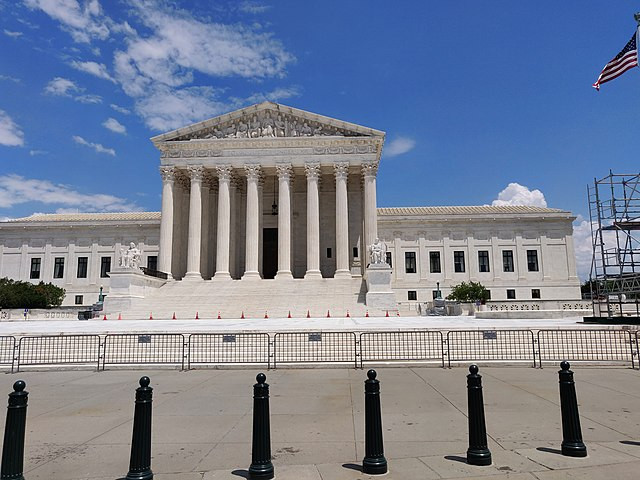The Supreme Court on Thursday ruled in favor of the National Rifle Association (NRA), allowing the gun rights group to continue its lawsuit against a former New York state official. The case centers on allegations that state regulators improperly pressured financial institutions to sever ties with the NRA, infringing on the group's First Amendment rights.
The court's ruling marks a significant victory for the NRA and establishes critical legal precedent regarding government overreach and free speech. Writing for the court, Justice Sonia Sotomayor emphasized that "government officials cannot attempt to coerce private parties in order to punish or suppress views that the government disfavors."
The dispute originated from actions taken by Maria Vullo, the former superintendent of the New York State Department of Financial Services (DFS), following the tragic 2018 mass shooting at Marjory Stoneman Douglas High School in Parkland, Florida, which resulted in 17 deaths. Vullo urged banks and insurance companies to distance themselves from the NRA, citing reputational risks associated with the group's advocacy.
The NRA alleged that Vullo's actions included backroom threats and promises of regulatory leniency in exchange for cooperation, which the group argued amounted to coercion. Specifically, the NRA claimed that during a meeting with insurance market Lloyd's of London, Vullo offered to overlook other regulatory violations if the company complied with her campaign against the NRA.
In its decision, the Supreme Court vacated the ruling of the 2nd U.S. Circuit Court of Appeals, which had previously dismissed the NRA's claims. The high court remanded the case for further proceedings consistent with its opinion, stating that the NRA had "plausibly alleged" that Vullo's actions violated the First Amendment.
"This is a landmark victory for the NRA and all who care about our First Amendment freedom," said William A. Brewer III, a lawyer for the NRA. "The opinion confirms what the NRA has known all along: New York government officials abused the power of their office to silence a political enemy."
The Supreme Court's ruling underscores a critical principle: that government officials cannot use their regulatory authority to suppress political speech they disagree with. The decision provides guidance for how far regulators can go when pressuring private companies that do business with controversial advocacy groups.
David Cole, the American Civil Liberties Union's (ACLU) national legal director, who argued the case for the NRA, hailed the decision. "Today's decision confirms that government officials have no business using their regulatory authority to blacklist disfavored political groups," Cole stated. The ACLU, typically an ideological opponent of the NRA, supported the group in this First Amendment case, underscoring the broader implications for free speech.
Neal Katyal, counsel for Vullo, expressed disappointment with the ruling but noted that the case would return to the 2nd Circuit for further consideration on qualified immunity grounds. "We are disappointed by the Court's decision. As the Court's decision makes clear, because of the posture of this case, this ruling required the Court to treat the NRA's untested allegations as true even though these allegations have no evidentiary merit," Katyal said.
The Supreme Court's decision did not address the issue of qualified immunity, which had been a basis for the lower court's dismissal of the lawsuit. The 2nd Circuit will now revisit this aspect, and Vullo's legal team remains confident that her actions will ultimately be vindicated.
Justice Ketanji Brown Jackson, in a concurring opinion, highlighted that such cases heavily depend on specific facts and circumstances. "Whether and how government coercion of a third party might violate another party's First Amendment rights will depend on the facts of the case," she wrote.
The ruling also touches on broader debates about the limits of government influence over private entities, especially in cases where political speech and advocacy are involved. This decision may also impact another pending case involving the Biden administration's efforts to influence social media platforms to combat misinformation, which raises similar First Amendment concerns.






